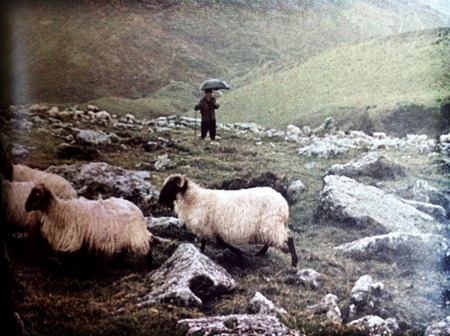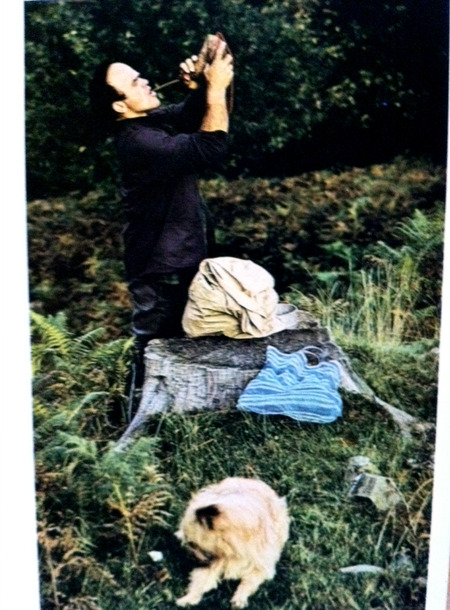Peoples of the Earth: Basques
Running along the Spanish shores of the Bay of Biscay and extending north to Bayonne in France is a hilly, luxuriant country. The prosperous, rugged people who live there call it Euzkadi-the ancient homeland of Euskaldunak. Although they are subject to the laws either of Spain or France, the Basques see themselves as a race apart; and to Euzkadi they give their real allegiance.
There's an amazing series of volumes called Peoples of the Earth, which I have alluded to before on the blog, published in the early 1970s. They chronicle a large amount of the curious people groups across the globe, with photos, sketches and text, and the best part is they do so in a fairly opinionated and sometimes a bit bigoted manner. Makes for good reading.
Every time I'm around these volumes, I always pick up and re-read the Basque section. It's full of interesting facts, misspellings, and generalizations--and I love it. I wanted to post a few of the photos, with their original descriptions, and some of what I found interesting. If I ever get around to it, I'll make a post on the predictions Our Dear Author made on the years 2000, as well (naked Utopias, anyone?).
The separatism of the Basques persists partly because they live in wild hill country far from the swim of French or Spanish life.
Abbé Lahetjuzan proved in the 18th century that Adam and Eve were the first Basques. And according to a friend of mine, they were from Ataun. Can you blame this little culture, then, for its oversized pride?
One of the first historical references to Basques is from 1120, when chronicler Giraldus Cambrensis says they are a people "thirsty for blood and ferocious as the wild beast with which they live."
The Basques are famous wine-makers. A man at work has a skin of wine with him. The occasional swig makes the day go better.
This is the truth; I still notice when, around 9 in the morning, I am taking a café in a small tavern by my house and a man pulls a stool up to the bar and orders a small glass of wine. Why not? It does make the day go better.
The women rarely leave the isolated homesteads but in decision-making they carry as much weight as the men.
This isolated homestead, the baserri, really is and was the backbone of the family unit, at least in rural areas. Families were once named after the houses, not vice-versa. The neighborhoods into which some of these houses are grouped are called auzoa, a word that was new to me when we lived this past summer in the village. As the book states "personal contacts beyond the auzoa are rare and when they exist often formal, respectful, cold and slightly tinged with suspicion." OH, so that's what that look was when we had beer and croquetas in the village tavern.
In the ancient city of Pamplona a man competing in a traditional contest raises a stone that weighs 247 pounds. Their athletic dances here performed in Pamplona, owe nothing to the culture of France or Spain. The Basques are a race apart. Basques gamble heavily on contests like this ram fight, which is a favorite spectacle in the port of San Sebastián.
Sports are one of the most beloved pasttimes with Basques, and they sure have some crazy ones. They talk about these stone lifting and tree trunk-chopping contests as if they were normal, because for the Basques, they are. Provincial, but normal.
Basques are fine dancers. In the plaza of an old Basque town in the Pyrenees, enthusiasts dance on after dusk.
This makes me want to create a modern day version of this essay...what would it include? Pintxo pote, exquisite middle-aged Basque women strolling La Concha in clothes from Zara? Basques, those fine dancers, tearing it up in Ezpala?
Is there any group of peoples as interesting as the Basques? Appalachians? Bretons? Leave me a recommendation and I'll look them up while I am around this encylopedias, and maybe even post a pic or two.






